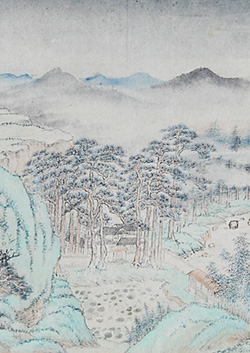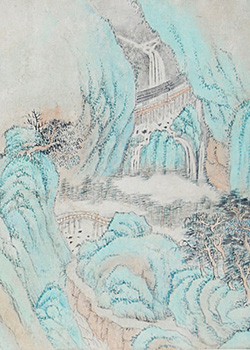The literati of the Ming and Qing were privileged. They were the administrative elite and land-owning class beneath the royal household and parallel to the military. As landowners and local leaders they were spread across the country, and took a keen interest in the local people whom they both represented and dominated. Their Confucian, Taoist and Buddhist interests often encouraged compassion for the wider public and the less able. They also took a curiosity in local customs, histories and natural resources. Along with poetic accounts of particular places, literati compiled local gazetteers and recorded vernacular traditions.
Literati led and propagated participatory arts, including calligraphy and a range of domestic design and customs. This involved commissions to artisans and the support of local industries that sometimes found national markets (in specialised products such as paper, ink and what we might now recognize as ‘fine design.’) A measure of romance for rural life also led them to be interested in products of very rough industry, things which they might suppose to be made un-self-consciously, the products of pure hearts.
| | 
 | 
 |